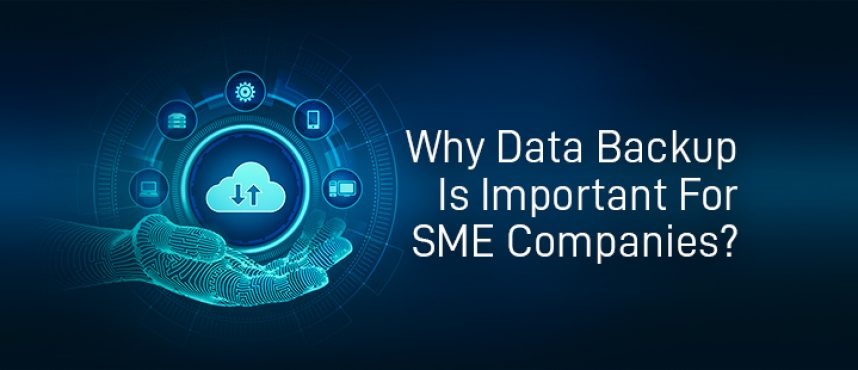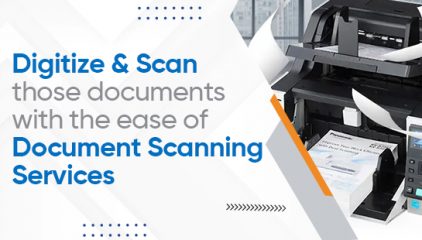Why Data Backup Is Important For SME Companies?
Data is the driving force of any organization, yet many organizations fail to protect their data or else they don’t do it the right way. Losing data is troublesome for any business and may lead to major business challenges that we may not even think about.
Let’s discuss today, why Data Backups are important for all sized organizations from single-handed companies to multi-billionaire organizations.
The success of organizations depends on many elements like Product uniqueness, right people, clear strategy and right attitude. With all these elements right Data is a predominant element because it all starts with data. Data in any form is the key to a successful business. It helps you to establish a strategy, confirms appropriate billing, keeps records and be quantitative in any essential task. Without data, a business can fail; preserving data is nothing but being ready for strategic priorities. This applies to businesses of all sizes, but when it comes to SME companies it is most important because the study shows that most of the SME companies fail to back up their data on time.
According to the London Chamber of Commerce, Companies who lose their data, 90% are out of business within two years and nearly 50% are unable to ever reopen their businesses due to data loss.
Small and Medium-sized enterprises don’t typically generate the same amount of data that large size companies generate, but the same kind of protection to the data is needed for all because the importance of data remains the same irrespective of business size.
Let’s deep dive into where SME Stands when we discuss Data Protection?
Data has great disadvantages when you compare this with any Hardware. Any system Hardware, RAM, Hard Disk, Server, Storage or Firewall can be replaced easily under a warranty program by manufacturer. You can get a new empty Hard drive but there will be no data stored if you lose it from your old hard drive. Data can be copied, stolen or maybe malfunctioned easily if you are not protecting it.
Even if the above is true and well known, unfortunately, many SME business owners, IT managers and single-handed business owners put their critical business data at risk and don’t have a system in place for Data Backup.
A survey found that 92% of companies have deployed some form of Data Backup technology, yet 50% of them have lost their data. Of the companies that lost data, approximately one-third lost sales, 20% lost customers and one-quarter claimed the data loss caused severe disruptions to the company business.
Study shows that the concerns about data loss are high amongst SMEs. Respondents in the survey rated Backup as their second-highest computing priority, after fighting against viruses and other malware in comparison with reducing cost and deploying new computers, even after one-third of the SMEs surveyed do nothing to back up their data.
In many instances, when they do, these SMEs do not fully back up the data stored on company computers. About a quarter of SMEs conduct no backup of desktops and another 13% do only informal backups where employees decide the frequency and which files are protected without any guidance. The situation is similar for servers; about 20% of SMEs conduct no server backup.
In many examples, when SME companies do their backup they do not take backup of the computers where they have stored the data. A quarter of the SMEs doesn’t take a backup of a desktop and nearly 13% do informal backups where they rely on the user who decides the frequency as per their convenience, which leads to a huge data loss. This scenario is the same for Server level backup, 20% of the SMEs don’t run a backup on the server.
According to survey results, causes of data loss are diverse. Although natural disasters are often cited as a risk, onsite disasters are the primary contributing factors of data loss. 63% of respondents cited hardware failure as a cause of data loss incidents, 27% from deliberate sabotage by employees and 27% from theft.
What are the challenges faced by SMEs for Data Loss?
There is an inherent misconception about the Data Protection and backup that it is associated with the important time of the IT staff and ineffective while considering cost on the other hand.
As keeping the car open while the key is in the ignition in the unlocked parking, because it is expensive to park the car for some time and collecting the key is also a tedious process. This couldn’t be a justifying answer at all; the same scenario is with data protection in the SMEs.
Lack of expertise in IT and smaller budgets for IT administrators SMEs facing challenges in their data protection objectives, as mentioned below but not limited to that.
Implementation of comprehensive data protection at minimum impact to business:
It is estimated that data volumes are increasing by as much as 50% per year. At the same time, the demand for higher system availability is shrinking backup windows. Together, these trends are placing greater pressure on small to medium-sized enterprises to improve backup efficiencies and deliver prompt recovery. Gone are the days when critical systems could be shut down to perform backup operations.
Meeting increasingly stringent backup and recovery requirements:
The requirements to recover lost or corrupt data to a specific point in time and reduce the overall time to restore data are becoming more stringent and are now often measured in hours instead of days. Increasingly, tape-based backup infrastructures are unable to meet these requirements.
Dealing with limited backup administration resources:
This is a key issue particularly with smaller companies that may not have dedicated IT staff or a backup administrators. The result is that a large percentage of critical data is generated by distributed clients; and an inability to protect this data can leave SMEs open to data loss that can have a significant impact on the business.
Deploying disaster recovery strategies cost-effectively:
As the survey made clear, data protection practices aren’t where they should be for most SMEs. Too often SMEs lack the resources, administrative expertise and off-site storage required to provide true disaster recovery capabilities.
Maintaining a secure backup and recovery strategy by providing adequate security, including encryption and virus protection, plus centralized management of an entire data protection infrastructure, ensuring backup data is protected and efficiently managed.
How to overcome these Challenges?
SMEs may not require the scale provided enterprise backup and data protection solutions, but they need the same functionality. These include Policy-Based backups, automated operations and centralized management. All this reduces the headache of your IT team and automates the data protection and backup operations. Integrated disaster recovery capabilities, meanwhile, make it easier to rapidly restore complete systems. Newer technologies such as disk-based disk-based backup, snapshot backups, data deduplication, continuous data protection and cloud-based backup options can help SMEs address shrinking backup windows, increasingly stringent RPOs/RTOs (recovery point objectives/recovery time objectives) and recovery reliability concerns. The technologies to implement these solutions do exist, but many SME managers and IT staff can feel overwhelmed by the technology and often, the cost of the solution, leaving their business vulnerable to an avoidable disastrous outcome. While there is no one answer that fits all needs all the time, SMEs would benefit from a backup solution that allows for automation and centralized management of their backup practices.










